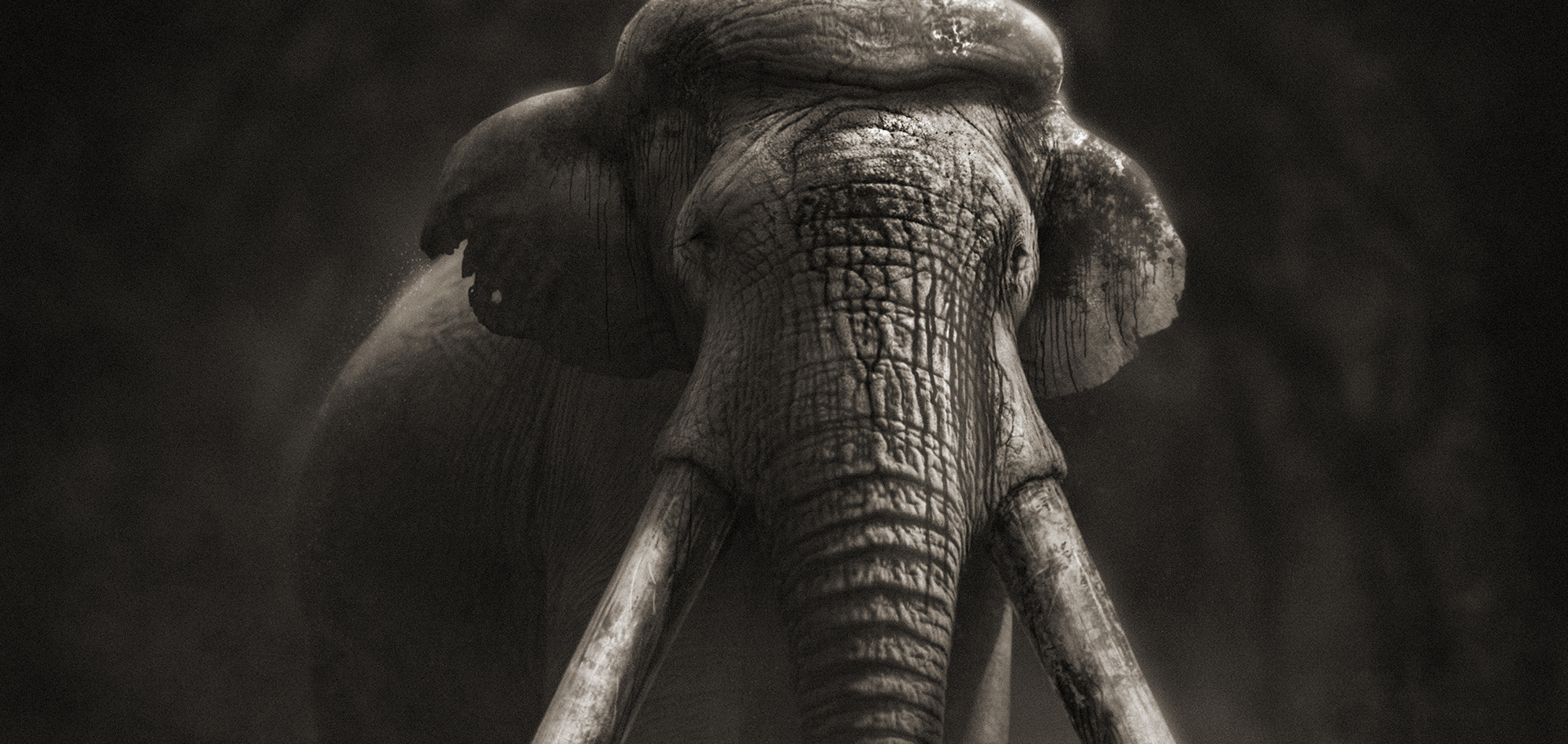The Ebbsfleet Elephant
Artist Emily Whitebread has created a new audio-visual work for Ebbsfleet International Station, through research into the Ebbsfleet Elephant, discovered during the construction of Ebbsfleet International Station. The Elephant (Palaeoloxodon antiquus, straight-tusked elephant) lived in what is now Britain during the Lower Palaeolithic period - the prehistoric period during which stone tools were made by humans.
The challenge lay in the fact that the information surrounding this interglacial period is provisional and fluid - it encompasses many different fields, which makes it fascinating but also difficult to grasp. Which species of human ancestor lived in Britain at the time is also unknown, as few contemporary hominin fossil remains have been found. There is no direct evidence as to how the Ebbsfleet Elephant died, but it is suggested that it may have been hunted and killed by the hominins of this period as it was found surrounded by flint tools used for butchery.
Emily’s attempt to reconstruct the Ebbsfleet Elephant included work with an archeologist, a geologist, a historian, a paleolithic artist, a biologist and anthropologist. The closest living relative to the Palaeoloxodon antiquus is the African Elephant, and she was donated contemporary audio for the work by sound recordist Chris Watson, and the Elephant Listening Project at Cornell University, USA.
The work has been made possible through conversations and with guidance by Dr Francis Wenban-Smith (University of Southampton), Professor Adrian Lister, Natural History Museum); Dr Steven Zhang, University of Bristol; and Curator Roula Pappa, Natural History Museum.
Find The Ebbsfleet Elephant on the main concourse at Ebbsfleet International Station, open every day during Estuary 2021.
Artwork by Bob Nicholls (Paleocreations.com) 2021
This Must Be the Place - Ebbsfleet Garden City
This project is part of This Must Be the Place, a three year programme Cement Fields has recently launched in Ebbsfleet Garden City. Working with artists and a wide range of partners, young people aged 16-25 will co-lead the programme, exploring and shaping Ebbsfleet Garden City as it is built. Together they will consider innovative and radical placemaking ideas with partners including architects, designers, philosophers and policy makers, and share their research on what has worked locally, nationally and internationally. This process will feed into a series of new and experimental art commissions and residencies, embedded in the city and community, connecting the histories and potential futures of the social, political, geographical and civic landscapes they live in.
This Must Be the Place is supported using public funding by the National Lottery through Arts Council England, and by Ebbsfleet Development Corporation.

 maybe later
maybe later










